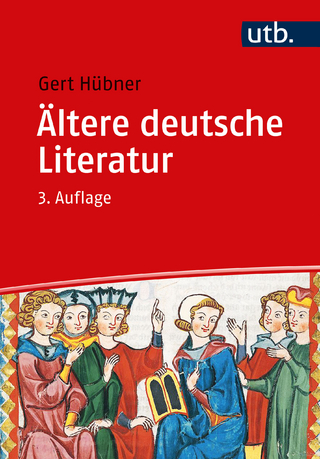
Edward Longshanks' Forgotten Conflict
The Anglo-French War 1294-1303
Seiten
2024
Amberley Publishing (Verlag)
978-1-3981-1351-0 (ISBN)
Amberley Publishing (Verlag)
978-1-3981-1351-0 (ISBN)
The conflict that effectively laid the bloody foundations for the Hundred Years War and taught military and logistical lessons to both sides that would not be forgotten.
The Anglo-French war of 1294-1303 has not been the subject of a major study since the early 1900s. Recent histories tend to treat it as a sideshow compared to Edward I’s wars in Wales and Scotland, which gives a false impression. In reality the Welsh and Scottish campaigns were distractions, and Edward regarded the war against France as his main focus. The main issue at stake was the defence and recovery of Aquitaine, the last substantial piece of the so-called ‘Angevin empire’. To that end Edward spent enormous sums of money on recruiting allies in the Low Countries and the Holy Roman Empire. Edward’s rival, Philip IV, also recruited allies to counter Edward, until the conflict engulfed much of Western Europe.
The result was a series of military stalemates, demonstrating that neither England nor France could achieve outright victory in a head-to-head conflict. There were plenty of bloody incidents and much hard fighting: the hanging of Gascon prisoners from the walls of Rions in 1295, for instance, or the epic thirteen-week siege of Saint Sever.
David Pilling places the war in its proper context and argues it was a vital step on the road to the more famous conflict we remember as the Hundred Years War.
The Anglo-French war of 1294-1303 has not been the subject of a major study since the early 1900s. Recent histories tend to treat it as a sideshow compared to Edward I’s wars in Wales and Scotland, which gives a false impression. In reality the Welsh and Scottish campaigns were distractions, and Edward regarded the war against France as his main focus. The main issue at stake was the defence and recovery of Aquitaine, the last substantial piece of the so-called ‘Angevin empire’. To that end Edward spent enormous sums of money on recruiting allies in the Low Countries and the Holy Roman Empire. Edward’s rival, Philip IV, also recruited allies to counter Edward, until the conflict engulfed much of Western Europe.
The result was a series of military stalemates, demonstrating that neither England nor France could achieve outright victory in a head-to-head conflict. There were plenty of bloody incidents and much hard fighting: the hanging of Gascon prisoners from the walls of Rions in 1295, for instance, or the epic thirteen-week siege of Saint Sever.
David Pilling places the war in its proper context and argues it was a vital step on the road to the more famous conflict we remember as the Hundred Years War.
David Pilling is a full-time author and historian based in West Wales, where he was raised on a smallholding. As a child he acquired a love for the Welsh countryside and Welsh history, especially the medieval era. He has written a successful series of novels set in the Middle Ages. His particular interests lie in the Edwardian wars of the late 13th century. He is the author of ‘Rebellion Against Henry II’ and ‘Edward I and Wales, 1254-1307’.
| Erscheinungsdatum | 05.03.2024 |
|---|---|
| Zusatzinfo | 16 Plates, color |
| Verlagsort | Chalford |
| Sprache | englisch |
| Maße | 156 x 234 mm |
| Gewicht | 614 g |
| Themenwelt | Geschichte ► Allgemeine Geschichte ► Mittelalter |
| Geisteswissenschaften ► Geschichte ► Regional- / Ländergeschichte | |
| Geschichte ► Teilgebiete der Geschichte ► Militärgeschichte | |
| Sozialwissenschaften ► Politik / Verwaltung | |
| ISBN-10 | 1-3981-1351-4 / 1398113514 |
| ISBN-13 | 978-1-3981-1351-0 / 9781398113510 |
| Zustand | Neuware |
| Haben Sie eine Frage zum Produkt? |
Mehr entdecken
aus dem Bereich
aus dem Bereich
eine neue Geschichte des Mittelalters
Buch | Hardcover (2023)
C.H.Beck (Verlag)
38,00 €


